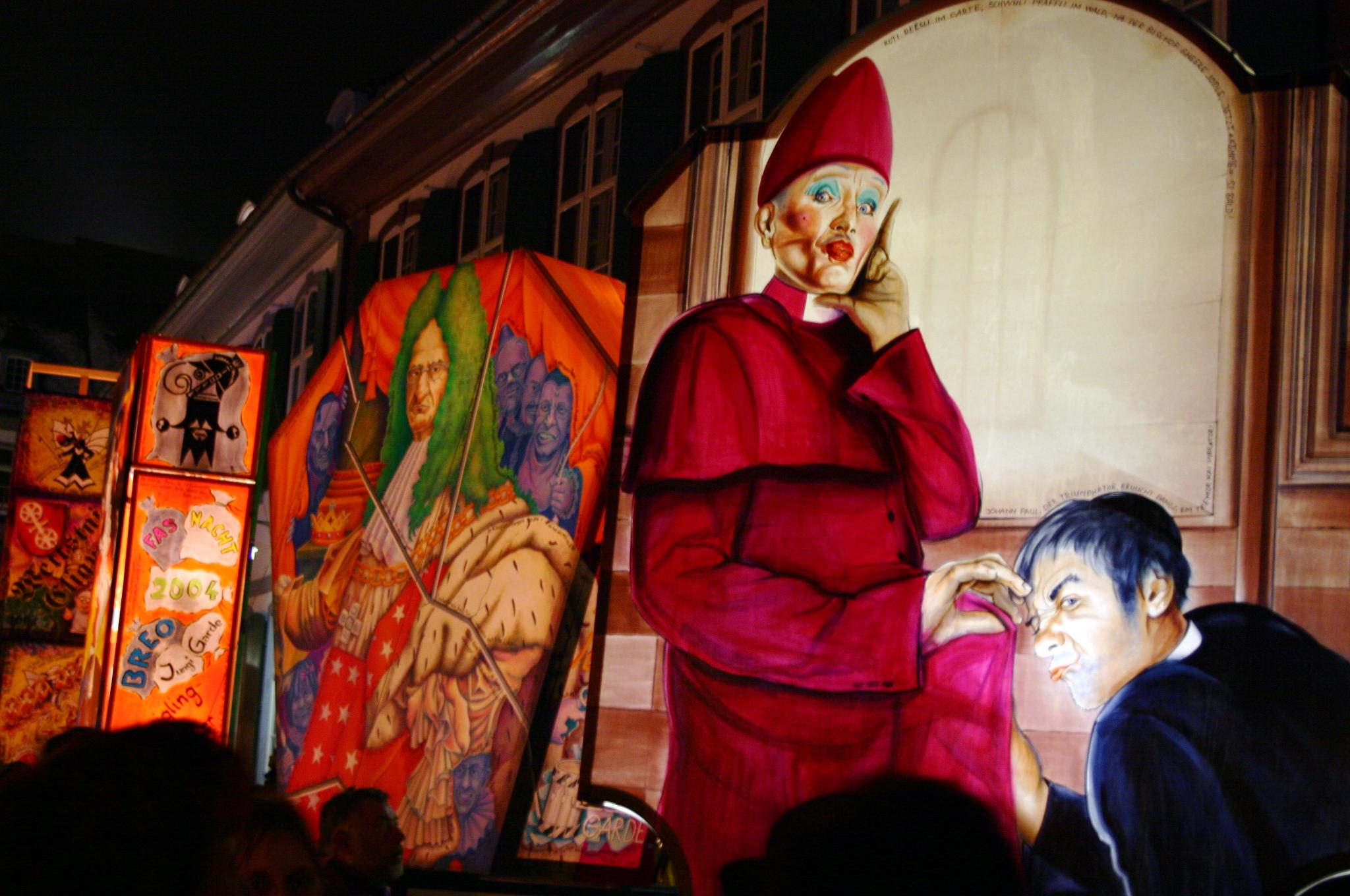
5 minute read
Carnival: The People Strike Back Skip Kaltenheuser
Basel
Carnival: The People Strike Back
Advertisement
Story & Photos by Skip Kaltenheuser . . . a superb barometer of how people view the forces bumping their lives around
Since ancient times, new beginnings — that’s carnival. It’s our craving to shuck memories of the slings and arrows that paralyze us. New Year’s resolutions disappear in the first head wind, but carnival has been serious about new beginnings since the Greeks partied to praise Dionysus, and the Romans thanked Bacchus for wine and flora, fertility heavy on their minds.
Murdered by Titans, Dionysus/Bacchus was reborn. His worship generated irrational exuberance, frenzied revels by women, and much early theater and standup comedy. When condemned by Rome as a sinister source of vice and revolutionary unrest, the frolic was periodically rejuvenated by slaves and poor free men.
These traditions — celebrating man as a free being without hierarchy — blended easily with the various pagan rites of spring practiced by Germanic and other tribes. The Church tried to suppress carnival but ultimately decided if you can’t beat ‘em, join ‘em, layering on compatible beliefs as they co-opted the locals. Carnival, or carne vale, comes from Latin, and means “flesh, farewell,” as Carnival heralds in the Lenten fast that leads to Easter. The mix with local and aboriginal beliefs creates an amazing array of traditions, extending to the New World and locales as far flung as India.
Most Americans know Carnival through New Orleans Mardi Gras, or through Rio or Trinidad, but the roots are firmly in Europe.
Napoleon and Hitler banned Carnival, but its anti-authoritarian roots quickly grew back. For years I’ve shouldered the task of chronicling carnivals across different cultures — a sense of duty. With anti-authoritarian and satirical roots planted by the ancients, Carnival is a superb barometer of how people view the forces bumping their lives around, as well as of the U.S. image abroad.
Carnival jabs are thrown throughout the world. My first carnival was in Cologne, Germany. Barely a month after the Monica Lewinsky scandal broke in 1998; I nearly kicked my camera off my balcony, lunging for it as a masterpiece of German engineering rounded Koln Cathedral. A grinning Bill Clinton, big as a Mack truck, groped a peeved Statue of Liberty, followed by a padlocked White House atop which stood Uncle Sam throwing blood sausages to a crowd roaring approval. They could take a joke even if a finger-wagging Joe Lieberman and members of the pious press couldn’t. Germans couldn’t understand America’s mania over this fiasco as more pressing worldly concerns tumbled into the fire.
One sojourn included sleepy towns in Portugal. In Torres Verdes, the centerpiece — not a float, the centerpiece — was called “Bushlandia.” Artfully rendered, five or so stories high, the sculpture offered up the President George W. Bush as a primitive king in furs, wielding a jeweled club and a scepter with a golden skull. He wore a crucifix on which was a soldier. Bush sat within the jaws of giant skull beneath the crown of the Stature of Liberty, about which crawled wormy critters in turbans. Other heads of the coalition of the willing — old Europe, new Europe, always confusing — were in his court. Prime Minister Tony Blair fanned Bush with feathers and scratched his backside. On the sculpture’s flip side, a bearded fellow hauled a wheelbarrow of explosives. Beneath him a government minister struggled to feed the world’s poor children. Nuclear missiles flanked Bush. Penguins blew time-out whistles as toxic waste washed over nature. To the beat of Brazilian bands amid the samba gyrations of hotties, all revelers passed before Bush. A small town in Portugal made a colossal comment on U.S. leadership. Until Trump paraded in, no one brought out the foreign carnival knives like Bush following his invasion of Iraq.
Perhaps the fastest punches are thrown in Basel, Switzerland. This unique Protestant take begins in a blacked-out city at 4 a.m. the Monday after Ash Wednesday. Thousands of costumed pipers and drummers accompany huge gaslit lanterns, painted with satirical images of political figures and issues of the day. A carnival favorite, Silvio Berlusconi — likened to a hybrid of the Godfather and Benito Mussolini, running his media empire like an Orwellian villain — will no doubt once again be prominent. The Swiss miss Bush, another favorite — and boy did they work him over — but while Bush now keeps a low profile, Berlusconi still continues to offer up new material.
Unless the pandemic(s) rise up so much that revelers beat a retreat into another pandemic coma, imagine the worldwide pentup Carnival energy waiting to explode. The gatling gun of topics occupying Carnival’s collective mind are reloaded in perpetuity. Putin’s invasion of Ukraine, Vladimir the Underwear poisoner will at least deflect some of the ire that would normally be awaiting the US. Recently Trump was mercilessly pilloried through Europe. The Covid variants will likely perform, one way or another. Imagine Saudi Arabia’s MBS as a coroner with a chain saw, or China’s Xi going after Taiwan, the little island country portrayed as a maiden whose refusals to a boorish Xi fall on deaf ears, as a Hong Kong maiden looks on in terror.
If the small towns in Portugal can use Carnival to speak truth to power, why can’t
Washington? The threat of ridicule at Carnival might rein in excesses, perhaps an invasion, a war without end.
A modest proposal: bring Carnival to Washington. The city may not have the religious roots of many carnival strongholds, but no place can fake religion like Washington. Imagine Carnival’s potential in the nation’s capital. True, it’s a challenging venue where fewer people can take a joke and images are often decided by consultants, bipartisan grifters with multiple masters. On the other hand, we’ve no shortage of folks willing to play the fool. Everything old is new again. Washington’s potential never runs dry.
Some things challenge humor’s sensibilities. It’s a fine line between humor and pathos. Satire can only sustain so much tragedy before it turns sour. There’s not much to be done with an apartheid state practicing brutal ethnic cleansing, for example, that isn’t pulled down by reality. But consider carnival’s pagan roots, the rites of spring chasing the winter demons, to hopeful fertility, to planting anew. Carnival remains irrepressible despite authority’s many stompings over the centuries. When Carnival collided with the Church, it softened with themes of redemption and renewal. The carnival spirit, burned in effigy, departs taking the woes of the year, leaving all with a clean slate. Has there ever been a city more in need of a spiritual cleanse than Washington?
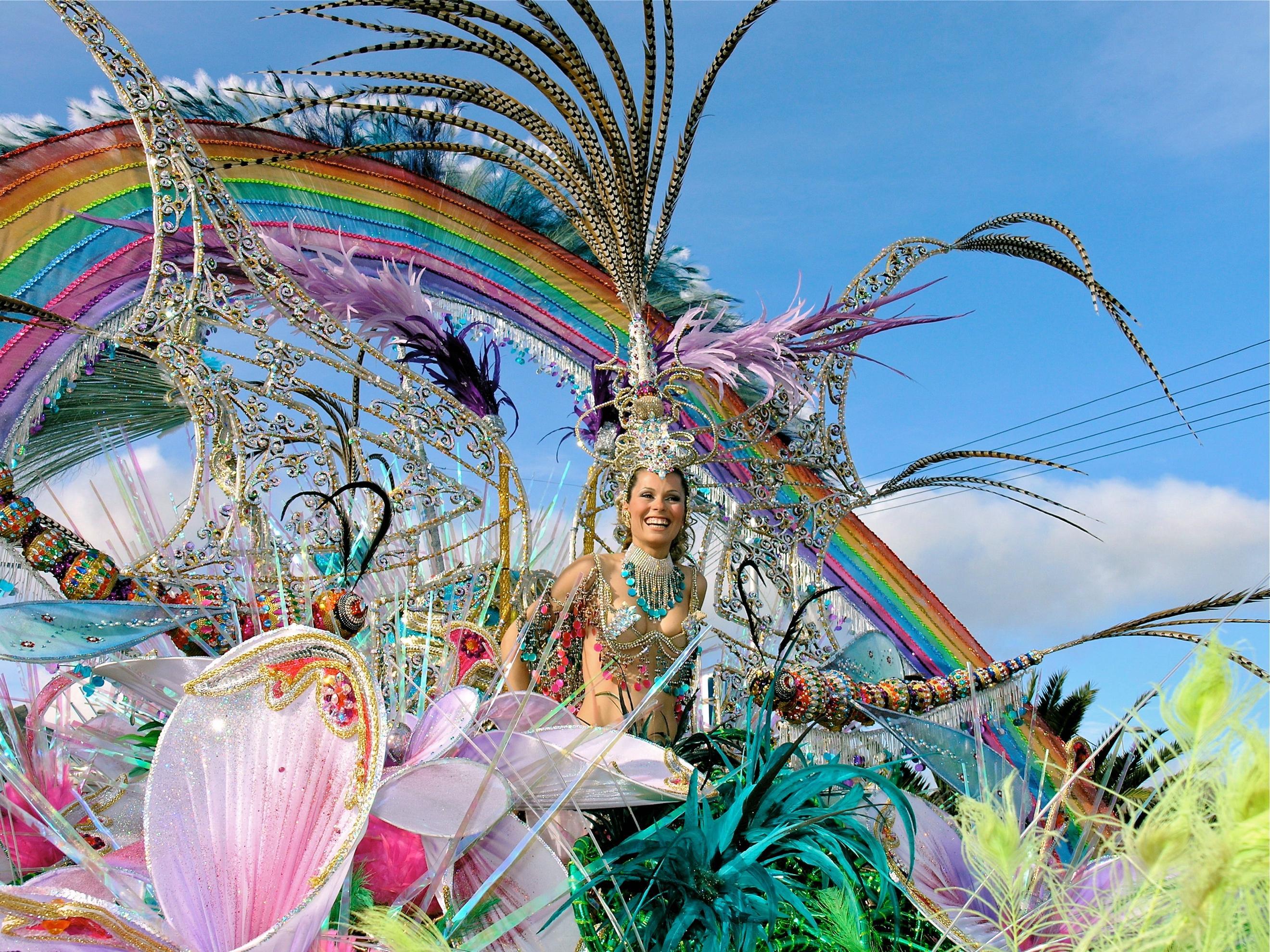
Tenerife
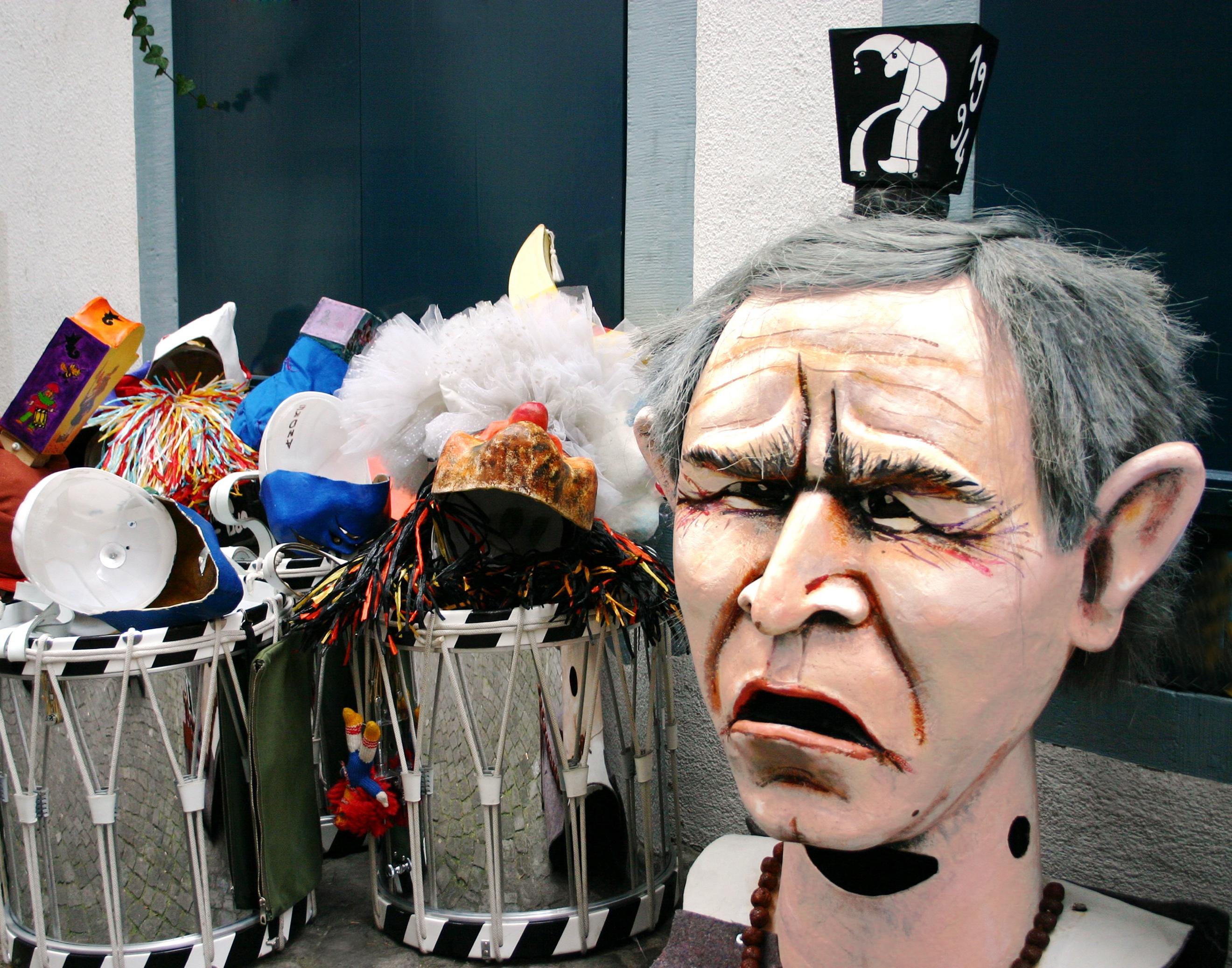
Basel

Cologne
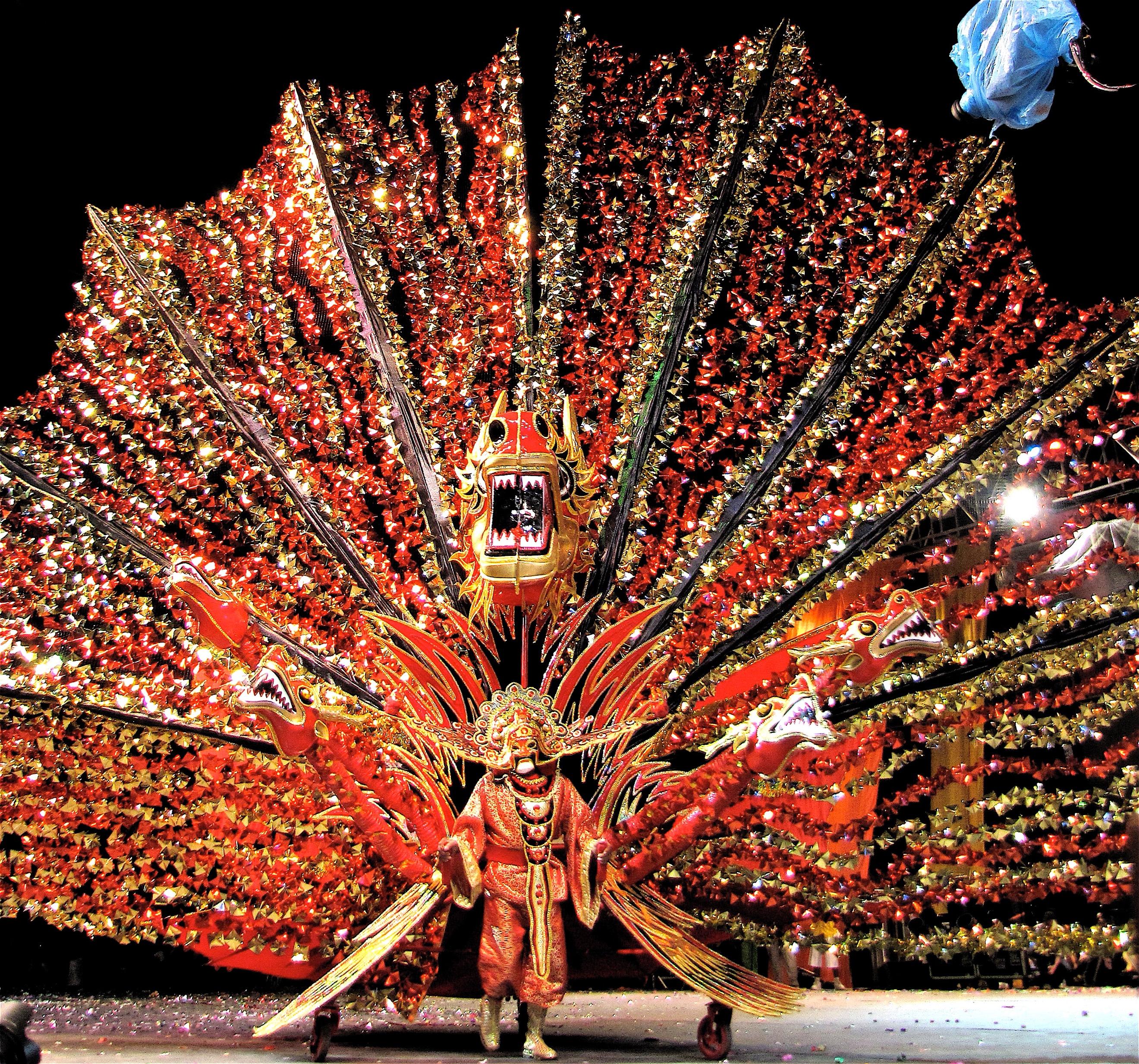
Trinidad
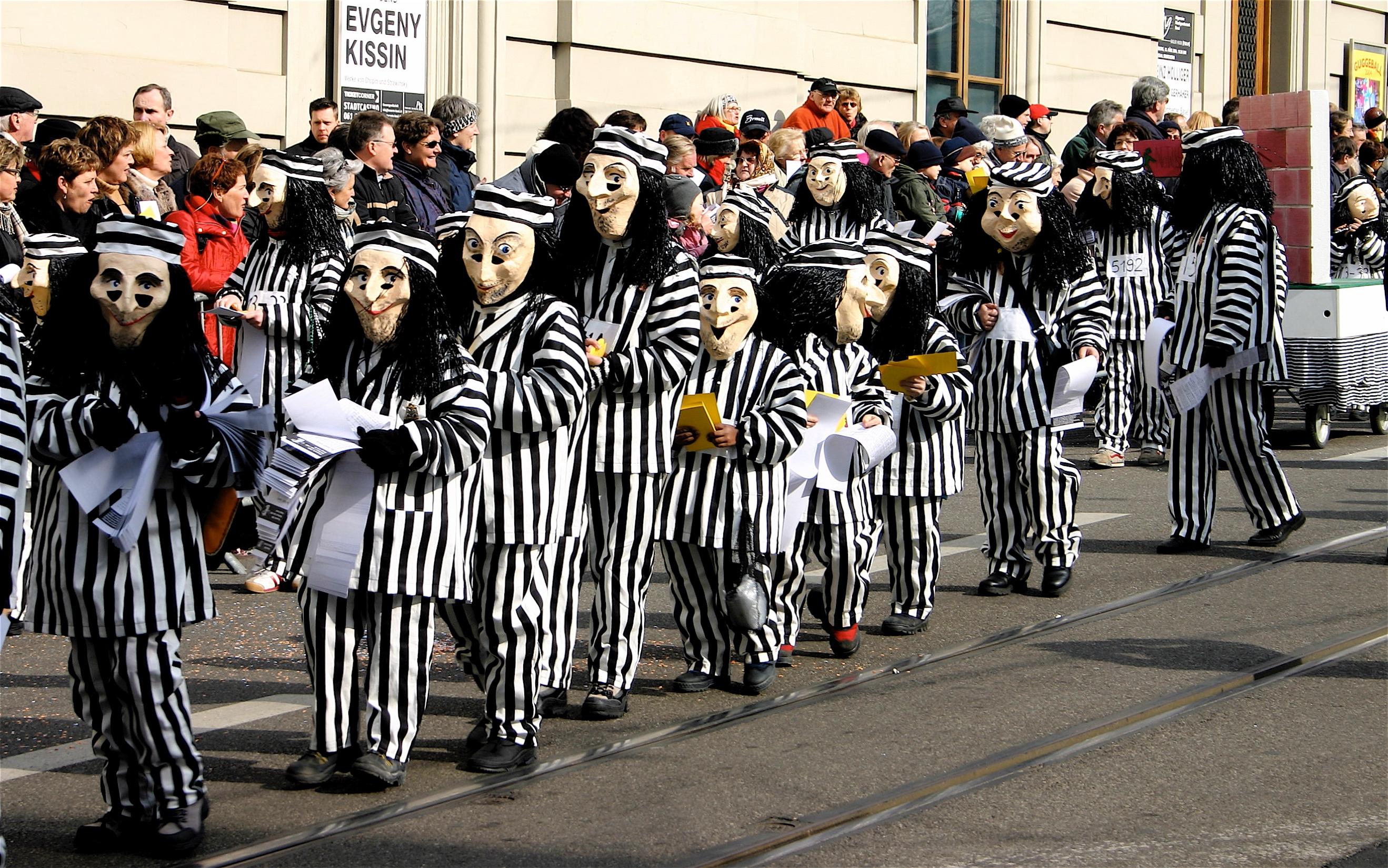
Basel










